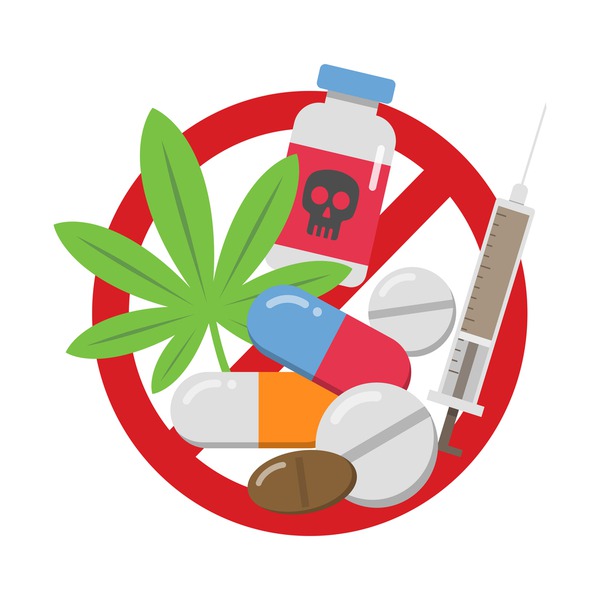Rehabilitation therapy often carries a stigma due to prevalent misconceptions and myths. These misunderstandings can create barriers that discourage people from seeking much-needed help. Rehab isn’t meant for just a specific group of individuals or as a temporary solution. Understanding the realities of rehab can help dismantle these misconceptions, thereby paving the way for lasting recovery. This article aims to clear up some of the most common myths about rehab, offering a clearer view of what one can expect from this transformative journey.
Common Misconceptions About Rehab
There’s a widespread belief that rehab is solely for those who’ve hit “rock bottom.” In reality, addiction is a progressive issue, and seeking treatment early can significantly change the course of one’s life. This misconception often prevents those who could benefit from early intervention. Additionally, some believe that rehab provides a quick fix. However, the reality is that rehab equips individuals with the tools needed for a lifelong commitment to sobriety, and ongoing support is usually necessary.
Rehab is For Everyone in Need
Rehab is not exclusive to individuals with severe addiction problems or public figures battling substance abuse. This perception stems largely from media portrayals and sensationalized stories. Addiction doesn’t discriminate; it affects individuals across all age groups, socioeconomic statuses, and professions.
Rehabilitation programs offer various forms of support to anyone struggling. There are New Jersey rehab facilities and others nationwide that provide comprehensive care to both local and non-local individuals. These facilities are equipped to handle a wide array of addiction issues, reinforcing the point that rehab is a resource available for all.
Recovery is Not Instantaneous
The notion that recovery from addiction happens overnight in rehab is misleading. While the initial treatment may last a few weeks, staying sober requires continuous effort beyond the rehab walls. The completion of rehab is merely the first step in a lifelong journey of recovery.
-
Aftercare programs are essential for maintaining sobriety.
-
Ongoing support may include therapy, counseling, or support groups.
-
Building a reliable support network can prevent relapse.
Relapse, while concerning, is often a part of the recovery process and not an indicator of failure. Continuous support and adaptation of coping strategies are crucial for long-term success.
Affordability of Rehab
Many believe that rehab is too expensive to afford. While some programs have high costs, there are various affordable options. Some facilities offer sliding fee scales based on income, and certain insurance plans cover addiction treatment. Exploring these options can make rehab more financially accessible.
Individuals are encouraged to research different payment plans, scholarships, and grants that can ease the financial burden. Such financial support ensures people can access the care they need without the stress of unaffordable costs.
-
Many facilities accept insurance plans to help cover treatment costs.
-
The availability of scholarships can support individuals in financial need.
-
Sliding fee scales adjust fees based on one’s income level.
Maintaining Work and Family Life
There’s a common belief that rehab demands leaving work or family for extended periods. With diverse rehab programs available, individuals can choose what best suits their lifestyle. Outpatient programs allow one to attend therapy sessions while balancing everyday obligations.
Technology has also enhanced accessibility, with online therapy and virtual support groups emerging as viable options. These solutions enable individuals to participate in treatment without needing to distance themselves from work or family responsibilities.
A Supportive Environment, Not Strict
Misconceptions about rehab facilities being ultra-strict discourage people from attending. While rules are important, rehab centers also focus on creating welcoming, inclusive environments. Patients engage in activities like meditation, art therapy, and exercise to support their recovery journey.
Group therapy builds a sense of community, and personal therapy sessions are tailored to individual needs. The positive atmosphere within rehab centers fosters personal growth and encourages healing.
Addressing Behavioral Addictions
Another misconception is that rehab is solely for substance addictions. Many rehab centers also treat behavioral addictions, such as eating disorders or gambling, which require similar levels of care and support.
By recognizing the wide range of issues that rehab can address, it becomes clear that comprehensive care is possible. Treatment centers focus on emotional and psychological support to cater to varied addiction challenges.
-
Behavioral therapy tackles the roots of addiction.
-
Support groups offer a platform for sharing stories and experiences.
-
A holistic approach enhances recovery through various therapeutic methods.
Rehab and Detoxification
Confusion often arises between rehab and detox, with some assuming they’re the same. Detox focuses on cleansing the body of addictive substances, while rehab equips individuals with the behavioral tools necessary for long-term recovery.
A comprehensive treatment plan often includes both detox and rehab, addressing both physical dependency and psychological resilience. Centers offering drug detox New Jersey and elsewhere know that a dual approach is critical for a successful recovery.
Reliable Success of Rehab Programs
A common belief suggests that rehab success rates are low. However, commitment to treatment, the quality of the program, and ongoing support are key influences on success. Effective rehab requires active participation, continual support from family and friends, and high-quality care.
After completing rehab, some individuals choose environments like sober living homes in NJ to continue receiving guidance. This extended support helps individuals make the transition from a structured rehab environment to independent living.
It’s important to see rehab as part of a broader recovery journey with tools and skills learned gradually. Building a supportive network can enhance accountability and offer a sense of belonging.
The Power of Community
While many focus on individual therapy, the community aspect of rehab should not be overlooked. Engaging with others in group sessions provides a sense of camaraderie and shared understanding, reinforcing the importance of community in the healing process.
These interactions help reduce feelings of isolation, providing motivation to stay committed to recovery. Friendships formed during rehab often become a crucial part of an individual’s support system, extending beyond treatment periods.
Seeking Help and Support
With knowledge comes the empowerment to make informed decisions. Seeking help and support can lead to transformative changes in one’s life. Misconceptions should not deter those in need from exploring the variety of treatment options available.
Researching and engaging with professionals in various rehab settings can help individuals find a program that suits their unique needs. Understanding there is no one-size-fits-all approach assures individuals that personalized care and support are within reach.
Being proactive and open to different therapy types enhances success. Customized treatment plans ensure effective care, offering a balanced integration of various therapies to suit individual needs.
Closing Remarks
Understanding rehab for what it really is can help eliminate myths and encourage more people to seek help. Misconceptions often cause unwarranted hesitation and fear. Breaking down these false beliefs, everyone is invited to take crucial steps toward recovery. Whether considering rehab for oneself or a loved one, knowing it’s a supportive environment aimed at overcoming addiction is key. With the right support and dedication, achieving and sustaining recovery is indeed possible.




